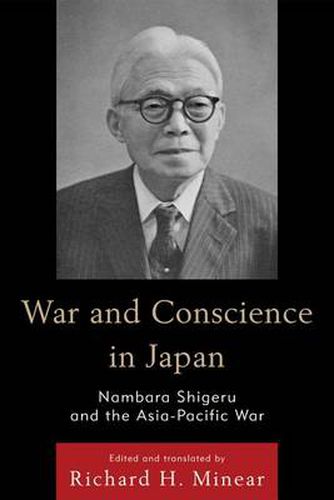Readings Newsletter
Become a Readings Member to make your shopping experience even easier.
Sign in or sign up for free!
You’re not far away from qualifying for FREE standard shipping within Australia
You’ve qualified for FREE standard shipping within Australia
The cart is loading…






One of Japan’s most important intellectuals, Nambara Shigeru defended Tokyo Imperial University against its rightist critics and opposed Japan’s war. His poetic diary (1936-1945), published only after the war, documents his profound disaffection. In 1945 Nambara became president of Tokyo University and was an eloquent and ardent spokesman for academic freedom. Among his most impressive speeches are two memorials to fallen student-soldiers, which directly confront Nambara’s wartime dilemma: what and how to advise students called up to fight a war he did not believe in. In this first English-language collection of his key work, historian and translator Richard H. Minear introduces Nambara’s career and thinking before presenting translations of the most important of Nambara’s essays, poems, and speeches. A courageous but lonely voice of conscience, Nambara is one of the few mid-century Japanese to whom we can turn for inspiration during that dark period in world history.
$9.00 standard shipping within Australia
FREE standard shipping within Australia for orders over $100.00
Express & International shipping calculated at checkout
One of Japan’s most important intellectuals, Nambara Shigeru defended Tokyo Imperial University against its rightist critics and opposed Japan’s war. His poetic diary (1936-1945), published only after the war, documents his profound disaffection. In 1945 Nambara became president of Tokyo University and was an eloquent and ardent spokesman for academic freedom. Among his most impressive speeches are two memorials to fallen student-soldiers, which directly confront Nambara’s wartime dilemma: what and how to advise students called up to fight a war he did not believe in. In this first English-language collection of his key work, historian and translator Richard H. Minear introduces Nambara’s career and thinking before presenting translations of the most important of Nambara’s essays, poems, and speeches. A courageous but lonely voice of conscience, Nambara is one of the few mid-century Japanese to whom we can turn for inspiration during that dark period in world history.